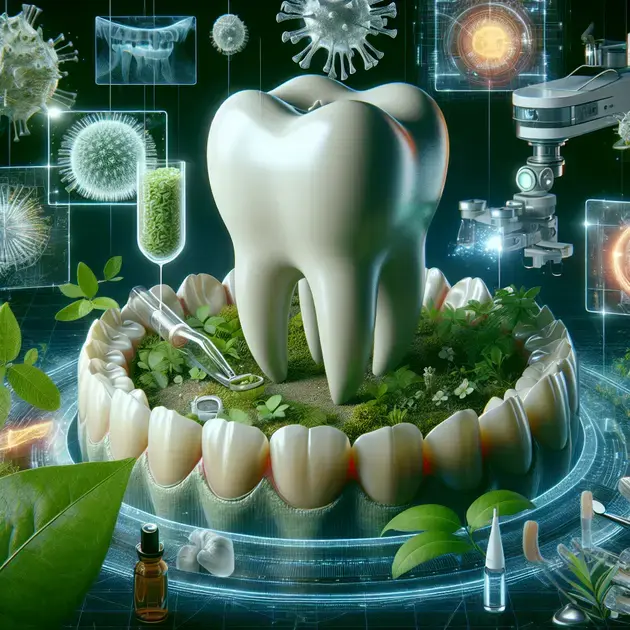Looking for effective medication for periodontitis treatment? You’re in the right place! Periodontitis, a severe gum infection that damages the soft tissue and destroys the bone that supports your teeth, requires proper treatment to prevent further complications.
Recent studies have shown promising results in the field of periodontitis treatment, with the development of new medications that target the root cause of the infection. These advancements have provided patients with more options for effectively managing and treating periodontitis, improving their overall oral health.

Effective Medication for Periodontitis Treatment: A Comprehensive Overview
Periodontitis is a serious gum infection that damages the soft tissue and destroys the bone that supports your teeth. Effective medication can play a crucial role in treating this condition. Here, we will provide a comprehensive overview of the most common medications used for periodontitis treatment.
1. Antibiotics
Antibiotics are often prescribed to control bacterial infections in periodontitis. Common antibiotics used in periodontal treatment include doxycycline, minocycline, and metronidazole. These medications can be taken orally or applied directly to the gums in the form of gels or chips. Apps like WebMD provide detailed information on antibiotic medications for periodontitis.
2. Antiseptic Mouthwash
Antiseptic mouthwashes containing chlorhexidine or essential oils can help reduce plaque and prevent gum inflammation. These mouthwashes are often recommended as an adjunct to regular brushing and flossing. Websites like Colgate offer guidance on choosing the right antiseptic mouthwash for periodontitis treatment.
3. Enzyme Suppressants
Enzyme suppressants like tetracycline can inhibit the enzymes that break down gum tissue. This medication is sometimes used in conjunction with antibiotics for more effective treatment. Platforms like Healthline explain the role of enzyme suppressants in managing periodontitis.
4. Pain Relievers
In cases where periodontitis causes significant pain and discomfort, pain relievers such as ibuprofen or acetaminophen may be recommended. These medications can help alleviate the symptoms of gum inflammation and soreness. Websites like Drugs.com provide information on over-the-counter pain relievers for periodontitis.
5. Herbal Remedies
Some individuals prefer natural remedies for periodontitis, such as herbal mouthwashes or supplements like green tea extract. While more research is needed to confirm the efficacy of these remedies, they are popular among those seeking alternative treatments. Websites like Healthline discuss the potential benefits of using herbal remedies for gum health.
The Latest Breakthroughs in Medication for Periodontitis
Ongoing research and technological advancements have led to several breakthroughs in medication for periodontitis. Stay updated on the latest developments to ensure you are receiving the most effective treatment for your gum health.
1. Nanotechnology in Periodontal Treatment
Nanotechnology is revolutionizing the field of dentistry, including periodontal treatment. Nanoparticles loaded with antimicrobial agents can target and eliminate bacteria more effectively than traditional therapies. Websites like PubMed provide insights into how nanotechnology is being applied in periodontitis management.
2. Personalized Medicine for Periodontitis
Advancements in genetic testing and personalized medicine have enabled healthcare providers to tailor treatments for periodontitis based on individual genetic markers. By understanding a patient’s genetic predisposition to gum disease, targeted therapies can be implemented. Platforms like ScienceDaily report on the latest innovations in personalized medicine for periodontitis.
3. Photodynamic Therapy for Gum Infections
Photodynamic therapy involves the use of light-activated compounds to target and destroy bacteria in gum infections. This non-invasive treatment shows promising results in reducing inflammation and promoting tissue healing. Apps like AAPD provide information on photodynamic therapy in periodontal care.
4. Regenerative Medicines for Gum Regrowth
Regenerative medicine techniques, such as growth factors and stem cell therapy, aim to regenerate damaged gum tissue and bone structure in individuals with periodontitis. These innovative approaches hold potential for restoring oral health and function. Websites like NIDCR offer insights into regenerative medicines for gum regrowth.
5. Drug Delivery Systems for Targeted Treatment
Advanced drug delivery systems, including nanogels and microspheres, enable targeted delivery of medications to the affected gum tissues. This precise application enhances the effectiveness of periodontitis treatment while minimizing side effects. Platforms like Wiley Online Library explore the use of drug delivery systems in periodontal therapy.
Choosing the Right Medication for Your Periodontitis Treatment
When selecting the appropriate medication for your periodontitis treatment, consider factors such as the severity of your condition, any existing health concerns, and your personal preferences. Consult with your dentist or periodontist to determine the most suitable medication for your specific needs.
1. Consultation with Healthcare Provider
Before starting any medication for periodontitis, schedule a consultation with your healthcare provider to discuss your medical history and current oral health status. Your provider can recommend the most effective treatment plan tailored to your individual needs. Websites like Mayo Clinic offer guidance on preparing for a consultation with a healthcare provider.
2. Review of Medication Options
Understand the different medication options available for treating periodontitis, including antibiotics, antiseptic mouthwashes, and pain relievers. Your healthcare provider can explain the benefits and potential side effects of each medication to help you make an informed decision. Platforms like WebMD provide comprehensive information on various medications for gum health.
3. Adherence to Treatment Plan
Follow your prescribed treatment plan diligently to achieve the best results in managing periodontitis. Consistent use of medications, along with proper oral hygiene practices, is essential for controlling gum infection and preventing disease progression. Apps like PlaqueFinder offer tools to track and monitor your adherence to the treatment plan.
4. Monitoring and Follow-Up Visits
Attend regular follow-up visits with your healthcare provider to monitor the effectiveness of the medication and make any necessary adjustments to your treatment plan. These visits allow for close monitoring of your oral health and ensure that your periodontitis is being effectively managed. Websites like Colgate provide resources on scheduling follow-up appointments for periodontal care.
5. Lifestyle Changes for Gum Health
In addition to medication, lifestyle changes such as quitting smoking, maintaining a balanced diet, and reducing stress can positively impact your gum health and overall well-being. Implementing these changes alongside medication can enhance the success of your periodontitis treatment. Platforms like CDC offer guidance on smoking cessation for improved oral health.

The Role of Antibiotics in Periodontitis Management
Antibiotics play a crucial role in managing periodontitis, a common and serious gum infection. When prescribed by a dental professional, antibiotics can help to control the growth of harmful bacteria in the mouth that contribute to the progression of periodontitis. These medications can be taken orally or applied directly to the affected areas, providing targeted treatment to combat the infection.
To effectively utilize antibiotics in the management of periodontitis, it is essential to follow the prescribed dosage and duration of the treatment regimen. Failure to complete the full course of antibiotics can lead to antibiotic resistance, making future infections more difficult to treat. Additionally, it is important to inform your dentist about any allergies or adverse reactions to antibiotics to avoid complications.
In some cases, antibiotics may be used in conjunction with other periodontal treatments, such as scaling and root planing, to enhance the effectiveness of the overall therapy. By incorporating antibiotics into a comprehensive treatment plan, dental professionals can better control the progression of periodontitis and improve the overall health of the gums.
While antibiotics can be beneficial in managing periodontitis, they should not be solely relied upon as a long-term solution. Maintaining good oral hygiene practices, such as regular brushing, flossing, and dental check-ups, is essential for preventing the recurrence of periodontal infections and promoting overall oral health.
Embracing Natural Remedies for Periodontitis Treatment
In addition to conventional treatments, natural remedies can also play a significant role in the treatment of periodontitis. Certain natural ingredients have been found to possess antibacterial and anti-inflammatory properties that can help combat gum infections and promote oral health. Embracing these natural remedies can provide a holistic approach to managing periodontitis.
One natural remedy that has shown promise in treating periodontitis is green tea. Rich in antioxidants and polyphenols, green tea can help reduce inflammation in the gums and inhibit the growth of harmful bacteria. Incorporating green tea into your daily routine as a mouthwash or by drinking it regularly can help support gum health.
Another natural remedy to consider is probiotics, which are beneficial bacteria that can help restore the natural balance of microorganisms in the mouth. Probiotic supplements or consuming probiotic-rich foods, such as yogurt and kefir, can promote oral health and reduce the risk of gum infections.
Essential oils, such as tea tree oil and peppermint oil, are also popular natural remedies for periodontitis. These oils possess antimicrobial properties that can help kill bacteria in the mouth and reduce inflammation in the gums. Diluting these oils with water and using them as a mouthwash can provide a refreshing and effective way to support gum health.
When exploring natural remedies for periodontitis, it is important to consult with a dental professional to ensure compatibility with existing treatments and to determine the most suitable approach for your individual oral health needs.
Innovative Approaches for Managing Periodontitis
Advancements in dental technology have led to the development of innovative approaches for managing periodontitis and improving treatment outcomes. One such approach is laser therapy, which uses focused laser energy to target and remove infected tissue in the gums. This minimally invasive procedure can help reduce gum inflammation and promote faster healing.
Another innovative approach is the use of photodynamic therapy, which involves the application of a photosensitive solution to the gums followed by exposure to a specialized light source. This treatment method can selectively target and destroy bacteria in the mouth, offering a non-invasive and effective way to manage periodontitis.
Recent research has also explored the potential of stem cell therapy in the treatment of periodontitis. Stem cells have the ability to regenerate damaged tissue and promote healing in the gums, offering a promising avenue for regenerative periodontal treatments. Incorporating stem cell therapy into periodontal treatment plans could revolutionize the way we approach gum disease management.
By embracing these innovative approaches and staying informed about the latest advancements in periodontitis management, dental professionals and patients alike can work together to achieve improved oral health outcomes and enhance the quality of periodontal care.
Conclusion
In conclusion, antibiotics play a critical role in managing periodontitis by controlling the growth of harmful bacteria in the mouth. It is essential to follow the prescribed dosage and duration of antibiotics to prevent antibiotic resistance and ensure effective treatment. Combining antibiotics with other periodontal therapies can enhance the overall management of the condition and improve gum health. However, antibiotics should not be solely relied upon, and maintaining good oral hygiene practices is crucial for long-term prevention of periodontal infections.
Additionally, embracing natural remedies such as green tea, probiotics, and essential oils can offer a holistic approach to treating periodontitis. These natural ingredients possess antibacterial and anti-inflammatory properties that support gum health and may be used in conjunction with conventional treatments. Consulting with a dental professional is crucial when exploring natural remedies to ensure they complement existing treatments and are suitable for individual oral health needs.
Furthermore, advancements in dental technology have introduced innovative approaches like laser therapy, photodynamic therapy, and stem cell therapy for managing periodontitis. These cutting-edge treatments can target infected tissues, destroy bacteria, and promote tissue regeneration, revolutionizing the way gum disease is managed. By incorporating these innovative approaches and staying informed about the latest developments in periodontitis management, patients and dental professionals can work together to achieve superior oral health outcomes and enhance the quality of periodontal care.



